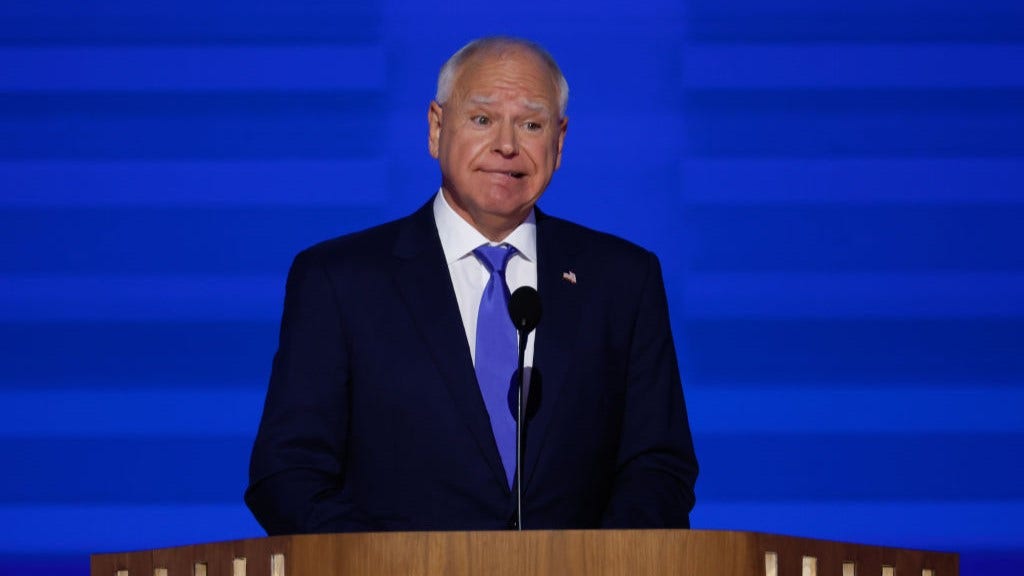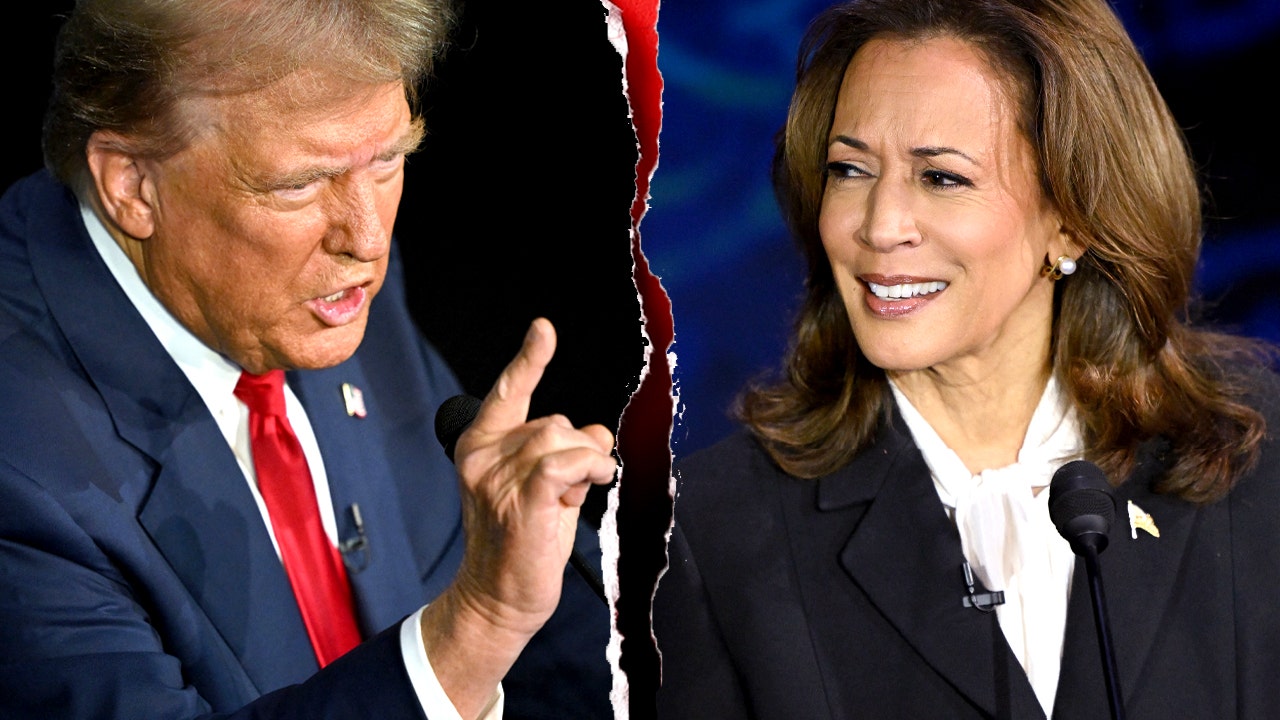California
Congress must take California out of the driver’s seat on electric car mandates

Congress is moving forward with legislation to prevent California from canceling gas-powered cars and trucks. On Sept. 14, the House of Representatives passed H.R. 1435, the Preserving Choice in Vehicle Purchases Act, which would prevent the EPA from authorizing California’s climate regulators to limit the sale or use of new motor vehicles with internal combustion engines.
The legislation, authored by Rep. John Joyce (R-Pa.), would also require the EPA to revoke any such authorizations previously granted by the Biden administration. The bill now moves to the Senate for consideration.
This is big news. With the stated aim of reaching 100 percent electric for new cars, SUVs, and pickups by 2035, the California Air Resources Board, in close coordination with the Biden administration, is attempting to coerce the auto industry to transition to battery-electric vehicles faster and more broadly than market demand could ever support.
CARB is only able to advance its agenda because the Biden EPA has reinstated special waivers from federal preemption under the Clean Air Act, which the Trump administration had previously and wisely revoked.
Such waivers, which are available exclusively to California, are supposed to be granted only when necessary “to meet compelling and extraordinary conditions” involving local air quality. CARB’s climate rules obviously fail to satisfy this requirement. They were issued in pursuit of Gov. Gavin Newsom’s (D) global climate agenda, not in response to local environmental problems unique to California.
The coercive influence of CARB’s rules is compounded by the Clean Air Act’s allowance for other states to adopt California’s regulations as their own. More than a dozen blue states have already done so, which means that auto makers now face an economic imperative to engineer their national fleets to meet CARB’s demands, with terrible implications for American families in every market in the country.
These regulatory requirements will increase the cost of all new cars and trucks, eliminate the internal combustion models that are most popular, and cause highway deaths and injuries to jump as more people find themselves stuck driving older and less-safe vehicles. It will also destroy hundreds of thousands of jobs in the U.S. auto sector, degrade air quality as the U.S. auto fleet ages, and put an enormous strain on our national electricity grid. Finally, it will make the U.S. ever-more dependent on China for critical inputs.
These are harms that Congress intended to avoid when, in accordance with the Interstate Commerce Clause of the Constitution, it mandated uniform national standards for new motor vehicles and preempted states from enforcing different requirements of their own.
Yes, federalism allows states to experiment with innovative policies within their own jurisdictions. But the advantages of federalism are erased when one state can sweep aside the policy judgments of Congress and dictate the market choices available to consumers across the nation, as California’s climate regulations are attempting to do.
CARB’s climate rules are already ineffective. They aren’t expected to have any discernible dampening effect on global warming. In fact, they will likely lead China to expand its carbon-intense coal-fired power generation even further, because the additional energy will be needed to process all the additional minerals required to manufacture millions of electric vehicle batteries for the U.S. market.
Already, the EPA’s decision to reinstate these waivers has been challenged in court by several states and industry groups. he case was argued in the U.S. Court of Appeals for the D.C. Circuit on Sept. 15.
Whether or not the challengers prevail in court, there remains a clear need for Congress to step in and permanently end California’s climate imperialism. Courts can resolve discrete legal questions in the context of particular cases, but only Congress can establish consistent and reasonable regulatory policies for the entire nation. H.R. 1435 would do so by removing California from the driver’s seat in its radical push to end gas-powered transportation.
Likewise, the law would compel federal regulators to be more honest about the actual costs of their auto regulations. To date, the Biden EPA and Department of Transportation have conveniently excluded the costs of compliance with CARB’s rules when calculating the economic burden of their own proposed electric vehicle policies. In this way, they are manipulatively understating the costs of Biden’s rules by 30 to 40 percent or more.
The truth is, CARB’s climate regulations for new vehicles are integrally related to the Biden policies. The costs imposed on American citizens by CARB will be inseparable from the Biden administration’s own anti-fossil fuel regulatory policies.
But even if the Biden administration’s heavy-handed attempts to kill off gas-powered cars and trucks did not impose such enormous costs, they’d still be deeply unpopular. Despite the climate lobby’s best efforts, an overwhelming majority of Americans remain happy with their internal-combustion-engine vehicles and the freedom they make possible.
In passing H.R. 1435, Congress can reaffirm that freedom and prove that the people, not executive-branch bureaucrats or California climate activists, still rule in Washington.
Steven G. Bradbury is former acting deputy secretary of transportation, former general counsel of the Department of Transportation, and a distinguished fellow at The Heritage Foundation.
Copyright 2023 Nexstar Media Inc. All rights reserved. This material may not be published, broadcast, rewritten, or redistributed.

California
California governor signs bills to protect children from AI deepfake nudes

SACRAMENTO, Calif. (AP) — California Gov. Gavin Newsom signed a pair of proposals Sunday aiming to help shield minors from the increasingly prevalent misuse of artificial intelligence tools to generate harmful sexual imagery of children.
The measures are part of California’s concerted efforts to ramp up regulations around the marquee industry that is increasingly affecting the daily lives of Americans but has had little to no oversight in the United States.
Earlier this month, Newsom also has signed off on some of the toughest laws to tackle election deepfakes, though the laws are being challenged in court. California is wildly seen as a potential leader in regulating the AI industry in the U.S.
The new laws, which received overwhelming bipartisan support, close a legal loophole around AI-generated imagery of child sexual abuse and make it clear child pornography is illegal even if it’s AI-generated.
Current law does not allow district attorneys to go after people who possess or distribute AI-generated child sexual abuse images if they cannot prove the materials are depicting a real person, supporters said. Under the new laws, such an offense would qualify as a felony.
“Child sexual abuse material must be illegal to create, possess, and distribute in California, whether the images are AI generated or of actual children,” Democratic Assemblymember Marc Berman, who authored one of the bills, said in a statement. “AI that is used to create these awful images is trained from thousands of images of real children being abused, revictimizing those children all over again.”
Newsom earlier this month also signed two other bills to strengthen laws on revenge porn with the goal of protecting more women, teenage girls and others from sexual exploitation and harassment enabled by AI tools. It will be now illegal for an adult to create or share AI-generated sexually explicit deepfakes of a person without their consent under state laws. Social media platforms are also required to allow users to report such materials for removal.
But some of the laws don’t go far enough, said Los Angeles County District Attorney George Gascón, whose office sponsored some of the proposals. Gascón said new penalties for sharing AI-generated revenge porn should have included those under 18, too. The measure was narrowed by state lawmakers last month to only apply to adults.
“There has to be consequences, you don’t get a free pass because you’re under 18,” Gascón said in a recent interview.
The laws come after San Francisco brought a first-in-the-nation lawsuit against more than a dozen websites that AI tools with a promise to “undress any photo” uploaded to the website within seconds.
The problem with deepfakes isn’t new, but experts say it’s getting worse as the technology to produce it becomes more accessible and easier to use. Researchers have been sounding the alarm these past two years on the explosion of AI-generated child sexual abuse material using depictions of real victims or virtual characters.
In March, a school district in Beverly Hills expelled five middle school students for creating and sharing fake nudes of their classmates.
The issue has prompted swift bipartisan actions in nearly 30 states to help address the proliferation of AI-generated sexually abusive materials. Some of them include protection for all, while others only outlaw materials depicting minors.
Newsom has touted California as an early adopter as well as regulator of AI technology, saying the state could soon deploy generative AI tools to address highway congestion and provide tax guidance, even as his administration considers new rules against AI discrimination in hiring practices.
California
PG&E warns customers of 13 California counties of possible power shutoffs

PG&E warned about 13,455 customers in 13 California counties that it may turn off power in some areas Monday due to elevated wildfire risk, the company said.
The utility is monitoring forecasts for breezy offshore winds and low humidity for possible Public Safety Power Shutoffs, according to a press release Saturday.
PG&E, which has paid millions in fines related to its role in wildfires, proactively cuts power in certain instances to reduce fire risk from energized power lines.
“These customers received notifications starting early Saturday and will be updated on Sunday morning,” the utility said. “Those notifications will inform customers of any changes in the forecast and how it will impact a possible Public Safety Power Shutoff.”
In the Bay Area, notices were sent to 346 customers in Alameda County, 286 in Contra Costa County, 140 in Napa County and 268 in Sonoma County, PG&E said.
California
Laws combating California campus antisemitism receive wide support, despite JVP criticism

New laws targeting campus antisemitism and ensuring K-12 education on the Holocaust and genocide will be signed into law by California Governor Gavin Newsom, his office announced this week.
The policies, authored by Assembly members Laura Friedman and Josh Lowenthal, Senator Steve Glazer, and Senator Henry Stern respectfully, will see increased education on the Holocaust in K-12 classrooms and antisemitism training included in California colleges’ diversity, equity, and inclusion programs.
The three new legislations were rated the highest priority by the Jewish Public Affairs Committee of California in light of growing antisemitism. JPAC is also supporting several dozen other bills. To date, 16 have been signed into law.
The new legislation
The deadline to submit or veto bills is September 30, meaning the legislation may still be turned down. Should bill AB 2925 pass, then, from January 1, Californian college campuses will be required to teach on antisemitism, and staff will be trained on how to combat discrimination against the five most targeted groups. This would likely see antisemitism training added to existing DEI policies.
Under SB 1287, the second of the three bills up for consideration, college campuses could be required to enforce and update student codes to prevent intimidation, harassment, and violence. Students would be given training on appropriate channels of civil discourse, allowing room for debates and discussions.
Finally, under SB 1277, the California Teachers Collaborative on Holocaust and Genocide Education would become an official state program. This is led by the JFCS Holocaust Center in San Francisco, which brings together 14 genocide education institutions across the state to create curriculum and training materials for K-12 teachers. If implemented, the educational materials would reach one million students by 2027.
Campus life
The legislation comes in the wake of campus protests over the Israel-Hamas war. Some American universities saw pro-Palestinian groups set up illegal encampments on campus, preventing the free movement of students paying to attend the institutes.
In one such instance, at the California-based University of Berkeley, anti-Israel protesters allegedly firebombed buildings. In another, a pro-Palestinian group interrupted a private dinner being held at the home of a Jewish professor. Other incidents have seen students physically assaulted for supporting Israel.
Wide support for bills
All three of these bills faced fierce opposition from the Council on American-Islamic Relations and Jewish Voice for Peace, the governor’s office said. However, the bills have maintained strong bipartisan support – thanks in part to the advocacy efforts made by JPAC and a coalition of over 40 Jewish organizations. Additionally, over 3,500 letters of support for the bill were sent to the governor.
However, they passed out the legislature with overwhelming, bipartisan majorities in both houses. JPAC led advocacy efforts throughout the legislative process – building a coalition of over 40 Jewish organizations – and organized over 3,500 letters to the Governor. These bills were also top priorities for the California Legislative Jewish Caucus.
“In a post-October 7th world, our school and campus leaders need more tools to keep students safe and provide accessible educational opportunities for all,” said David Bocarsly, JPAC Executive Director. “This is true for both Jewish students and other targeted students. These bills meaningfully counter antisemitism and hate by creating greater empathy and understanding and ensuring all students feel safe on their campus. We are incredibly grateful to our partners and champions in the Legislative Jewish Caucus, led by Assemblymember Gabriel and Senator Wiener, and we thank Governor Newsom for signing these bills into law.”
-

 News1 week ago
News1 week agoVideo: Who Are the Black Swing Voters?
-

 Politics1 week ago
Politics1 week agoDem lawmakers push bill to restore funding to UN agency with alleged ties to Hamas: 'So necessary'
-

 News1 week ago
News1 week agoFour killed, dozens injured in Alabama shooting
-

 News1 week ago
News1 week agoMoney for cutting-edge climate technology could dry up in a second Trump term
-

 News1 week ago
News1 week agoElection 2024 Polls: Florida
-

 World1 week ago
World1 week agoCritics slam landmark EU competitiveness report as 'one-sided'
-

 Politics1 week ago
Politics1 week agoSecret Service protection bill passes House unanimously after Trump assassination attempts
-
/static.texastribune.org/media/files/5e5395400eb1f412fb6d97a439483caf/SpaceX%20Brownsville%20MGO%2005.jpeg)
/static.texastribune.org/media/files/5e5395400eb1f412fb6d97a439483caf/SpaceX%20Brownsville%20MGO%2005.jpeg) News1 week ago
News1 week agoCards Against Humanity says in new lawsuit that SpaceX has destroyed some of its South Texas property





:quality(70)/cloudfront-us-east-1.images.arcpublishing.com/adn/OF7TEER2CNEHDBBODEJBMKC7KI.JPG)










